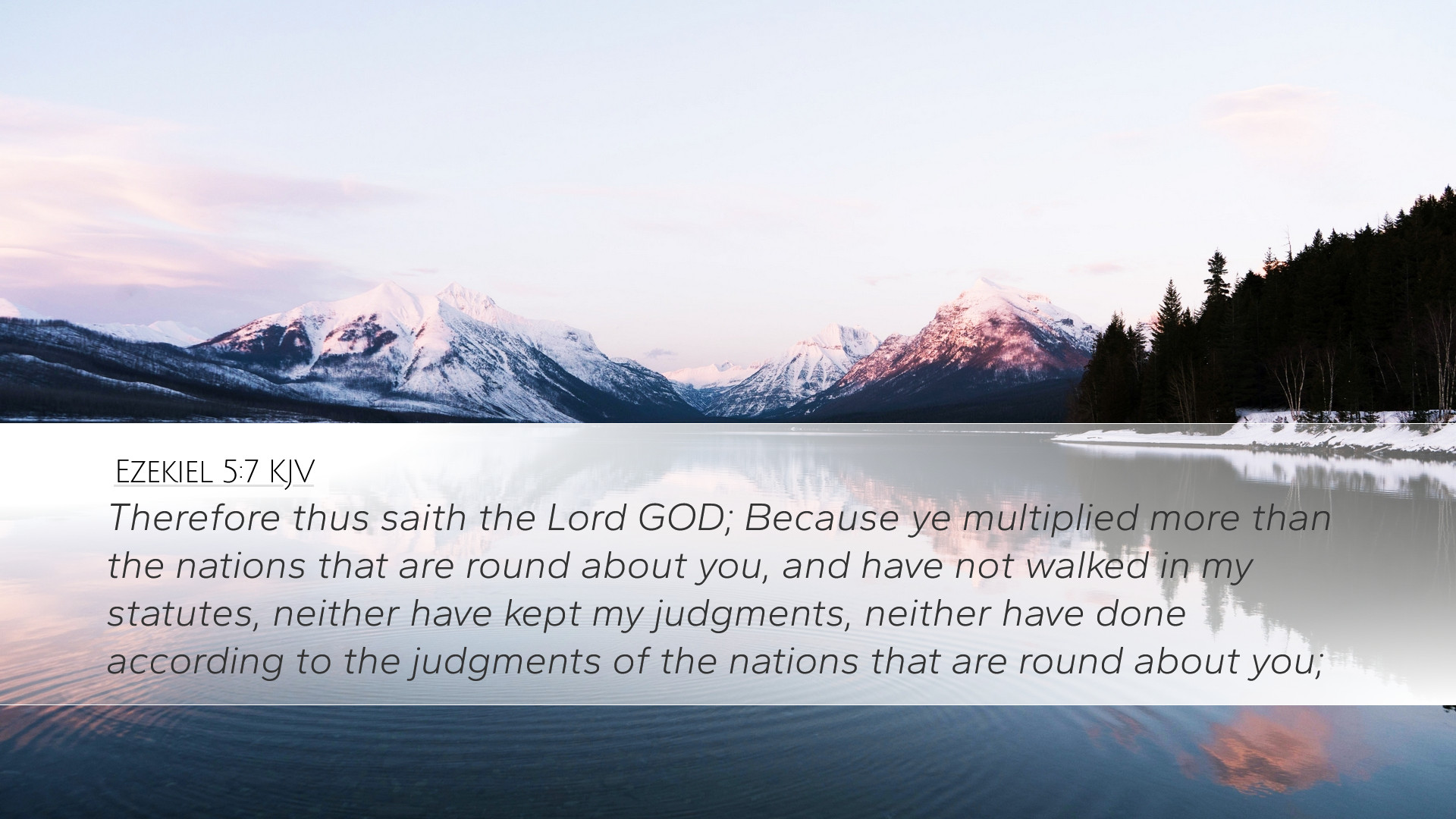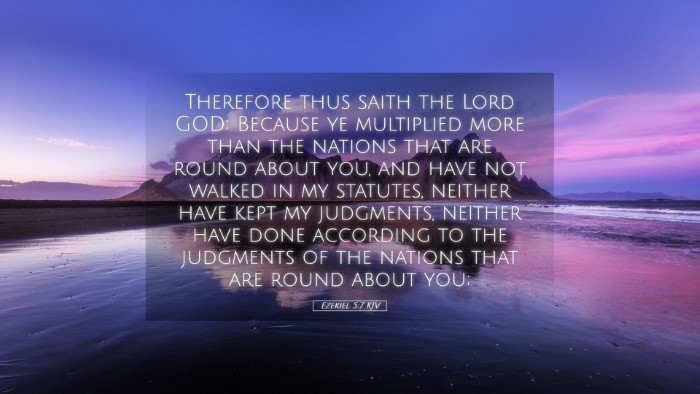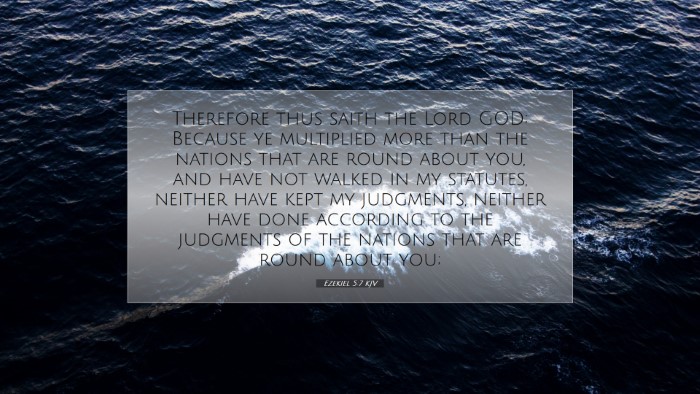Ezekiel 5:7 Commentary
Verse Text: "Therefore thus saith the Lord God; Because ye multiplied more than the nations that are round about you, and have not walked in my statutes, neither have kept my judgments, neither have done according to the judgments of the nations that are round about you;" (Ezekiel 5:7)
Introduction
This verse comes in the context of Ezekiel’s prophetic ministry during the Babylonian exile, a time when the Israelites faced judgment for their unfaithfulness to God. Ezekiel, as a prophet, was tasked with conveying God’s messages, which often included calls for repentance as well as declarations of impending judgment.
Contextual Analysis
The prior verses set a stage of divine judgment upon Jerusalem. It is crucial for scholars and theologians to understand that Ezekiel’s messages were layered with historical context, cultural intricacies, and theological implications. The people of Israel had strayed from God’s paths, adopting not only the practices of surrounding nations but also increasing their iniquities.
Theological Insights
Violation of Covenant: The phrase "multiplied more than the nations" suggests a departure from God’s statutes. The covenant relationship between God and Israel demanded loyalty and adherence to divine laws. The failure to adhere signifies a significant breach that displeased God profoundly.
God’s Holiness: The understanding of God’s holiness is critical here. In Matthew Henry's Commentary, we see that God is concerned not merely with behaviors but also with the heart’s disposition. The Israelites had neglected their covenant obligations and thus sullied God’s name among the nations.
Exegesis
1. Comparison with Surrounding Nations: The Israelites had begun to measure themselves by the standards of other nations, choosing to follow their idolatrous practices. Albert Barnes notes that Israel’s moral decline represented not only a failure to follow divine commands but also a failure to set a distinct identity as God’s chosen people.
2. The Call for Distinction: The verse suggests that God expected Israel to manifest a holiness distinct from other nations. As Adam Clarke explains, this call to remain separate is a vital theme in the Old Testament and serves as a reminder that believers carry the responsibility of reflecting divine righteousness.
Judgment and Consequence
The mention of judgment is central to this verse. God’s message through Ezekiel communicates the inevitable consequences of their actions. The people of Israel expected to receive blessings, but their choices led to curses as detailed in the Law (Deuteronomy 28).
Practical Applications
- Identifying Idolatry: Leaders and pastors must critically examine contemporary practices and standards that may lead to a slippery slope of idolatry within their congregations.
- Upholding Holiness: This passage compels modern believers to reflect on their own lives and ensure they do not conform to the secular values that surround them.
- Community Impact: As Clarke suggests, the witness of a congregation can either honor or dishonor God, making it imperative to embody the love and righteousness presented in Scripture.
Conclusion
Ezekiel 5:7 serves as a stark reminder of the seriousness with which God views covenant faithfulness and the call to be distinct. For pastors, students, and theologians, this verse compels a deep examination of both individual and communal faithfulness. The implications of rejecting divine statutes are vast and extend beyond personal consequences to wider communal repercussions.
The insights gained from the interpretations of Matthew Henry, Albert Barnes, and Adam Clarke highlight the enduring relevance of this passage in guiding contemporary believers toward a posture of repentance and a renewed commitment to uphold the divine statutes that define the people of God.


